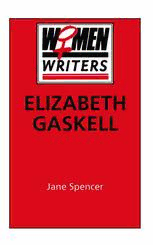
Elizabeth Gaskell PDF
Preview Elizabeth Gaskell
ELIZABETH GASKELL Women Writers General Editors: Eva Figes and Adele King Published titles Margaret Atwood, Barbara Hill Rigney Jane Austen, Meenakshi Mukherjee Elizabeth Bawen, Phyllis Lassner Anne Bronti!, Elizabeth Langland Charlotte Bronti!, Pauline Nestor Emily Bronti!, Lyn Pykett Fanny Burney, Judy Simons Willa Cather, Susie Thomas Colette, Diana Holmes Ivy Compton-Burnett, Kathy Justice Gentile Emily Dickinson, Joan Kirkby George Eliot, Kristin Brady Elizabeth Gaskell, Jane Spencer Sylvia Plath, Susan Bassnett Christina Stead, Diana Brydon Eudora Welty, Louise Westling Edith Wharton, Katherine Joslin Forthcoming Elizabeth Barrett Browning, Marjorie Stone Doris Lessing, Margaret Moan Rowe Katherine Mansfield, Diane DeBell Toni Morrison, Nellie McKay Jean Rhys, Carol Rumens Christina Rossetti, Linda Marshall Stevie Smith, Romana Huk Muriel Spark, Judith Sproxton Gertrude Stein, Jane Bowers Virginia Woolf, Clare Hanson Women Writers Elizabeth Gaskell Jane Spencer Macmillan Education ISBN 978-0-333-37947-9 ISBN 978-1-349-22617-7 (eBook) DOI 10.1007/978-1-349-22617-7 © Jane Spencer 1993 Softcover reprint of the hardcover 1st edition 1993 All rights reserved. For information, write: Scholarly and Reference Division, St. Martin's Press, Inc., 175 Fifth Avenue, New York. N.Y. 10010 First published in the United States of America in 1993 ISBN 978-0-312-06058-9 Library of Congress Cataloging-in-Publication Data Spence~ Jane. Elizabeth Gaskell I Jane Spencer. p. cm.-(Women writers) ISBN 978-0-312-06058-9 1. Gaskell, Elizabeth Cleghorn, 1810-1865--Criticism and interpretation. 2. Women and literature-England History-19th century. I. Title. II. Series. PR4711.S67 1993 823'.8--dc20 92-30539 CIP Contents Acknowledgements vi Editors' Preface vii Notes on the Texts viii 1. Warring Members: Elizabeth Gaskell, Writer 1 2. Giving Utterance: Mary Barton 32 3. Improper Women: Ruth and The Life of Charlotte Bronte 51 4. Changes: Cranford and North and South 75 5. History and Tyranny: Sylvia's Lavers 96 6. Household Goodness: 'Cousin Phillis', Wives and Daughters 116 Notes 141 Selected Bibliography 147 Index 152 v Acknowledgements An earlier version of chapter 2 appeared in The Gaskell Society Journal, vol. 2, 1988, as 'Mary Barton and Thomas Carlyle'. I am grateful to the editor, Alan Shelston, for permission to use the material here. I would also like to thank John Chapple and Arthur Pollard, the editors of The Letters of Mrs Gaskell, and Manchester University Press, the publishers, for permission to quote from their edition. Thanks go to Ian Campbell, Gareth Roberts, Peter Keating, and Valerie Shaw, who helped me at various times by discussing Gaskell with me, and especially to Josephine McDonagh, who read and commented on chapters in draft. I would also like to thank all the stu dents who took the special option on Elizabeth Gaskell in Edinburgh in the years 1985-7, and those who took the 'Women's Writing' option in Exeter in the years 1989-92. Their stimulating discussions of Gaskell helped me enormously. I am very grateful to Marion Shaw and Patsy Stone man, whose course 'Women in Literature and Society' first introduced me to Gaskell, and to much else. Thanks to Hugh and Kate, for being there. JANE SPENCER vi Editors' Preface The study of women's writing has been long neglected by a male critical establishment both in academic circles and beyond. As a result, many women writers have either been unfairly neglected or have been marginalised in some way, so that their true influence and importance has been ignored. Other women writers have been accepted by male critics and academics, but on terms which seem, to many women readers of this generation, to be false or simplistic. In the past the internal conflicts involved in being a woman in a male-dominated society have been largely ignored by readers of both sexes, and this has affected our reading of women's work. The time has come for a serious reassessment of women's writing in the light of what we understand today. This series is designed to help in that reassessment. All the books are written by women because we believe that men's understanding of feminist critique is only, at best, partial. And besides, men have held the floor quite long enough. EVA FIGES ADELE KING vii Notes on the Texts CCP Cranford, and 'Cousin Phillis', in Cranford/ Cousin PhiUis (Harmondsworth: Penguin, 1976). CP&T 'Curious, If 'Ihle', in Cousin Phillis and other 'Rlles (Oxford: World's Oassics, 1981). L The Letters of Mrs Gaskell, ed. J. A. V. Chapple and Arthur Pollard (Manchester: Manchester University Press, 1966). LCB The Life of Charlotte Bronte (Harmondsworth: Penguin, 1975). MB Mary Barton (Harmondsworth: Penguin, 1970). NS North and South (Harmondsworth: Penguin, 1977). R Ruth (Oxford: World's Oassics, 1985). SL Sylvia's Ll1Ders (Oxford: World's Oassics, 1982). WD Wives and Daughters (Oxford: World's Classics, 1987). viii 1 Warring Members: Elizabeth Gaskell, Writer There are many Elizabeth Gask.ells. She has been described as a sweet, gentle, utterly conventional Victorian woman who happened unawares to write some good novels; and as supporter of the women's movement whose writing embodies a rational and radical social critique.1 In her lifetime much of her work was controversial: Mary Barton brought accu sations from the manufacturers that she was too much on the side of the workers; the first volume of Ruth was burnt by some respectable men of her acquaintance; and the first edition of The Lifo of Charlotte Bronte had to be withdrawn because of threatened libel action. Yet by the early years of the twentieth century many of her readers thought of her chiefly as the charming author of delightful Cranford. Reviving interest in Gaskell from the 1950s onwards has reopened old controversies and started new ones. Marxist critics, reassessing her novels of industrial life, have praised her sympathetic render ing of working-class life, but concluded that she was an apologist for middle-class power.2 Feminist critics re-reading her presentation of gender relations have found her on the contrary deeply critical of the power structures of her society.3 Such widely disparate assessments reflect inevitable differences among readers approaching a writer in different contexts and from different points of view; but the proliferation of Elizabeth Gaskells is not entirely the responsibility of her critics. She, herself, felt split, and 1
